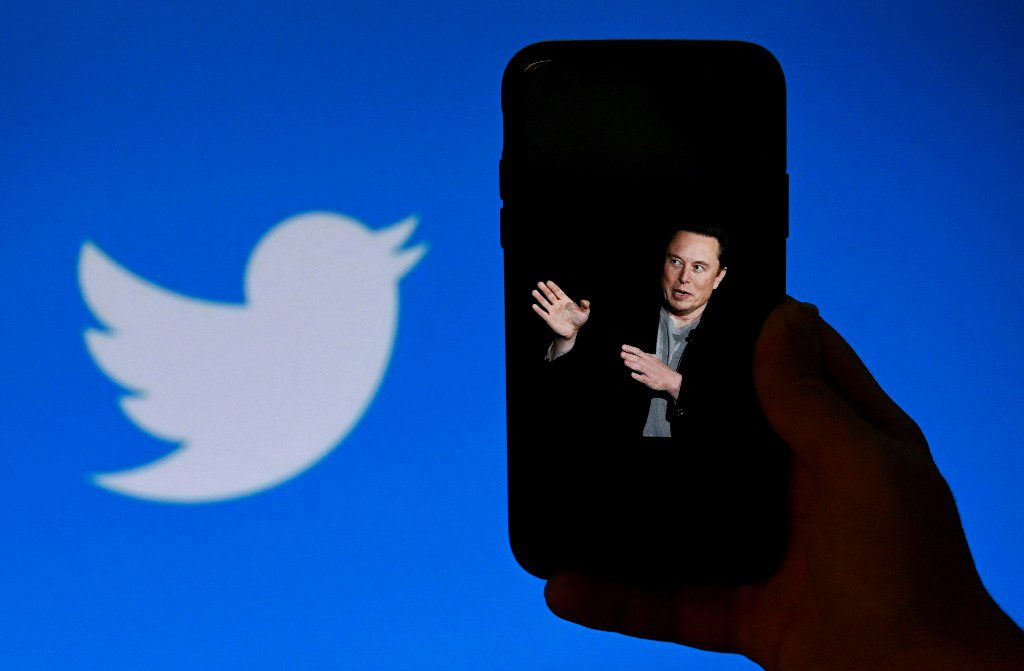While addressing the contentious concept of ‘free speech,’ Musk has said it should align with the law. What Musk fails to account for is how many different standards then Twitter would need to meet.

Justin Salhani
The acquisition of social media platform Twitter by the world’s once richest man, Elon Musk, has led to a period of chaos with media reports wondering if the end is nigh. Whether or not Twitter goes under, its new proprietorship will have an impact on users in the Middle East and North Africa, social media experts who monitor the region say.
Twitter is not the most widely used social media platform in the region. Users make up only a fraction of that of platforms like Facebook, Whatsapp, Instagram or even Snapchat. Only around 8 million people in North Africa use Twitter. Twitter’s growth in the region has stunted in recent years. Still, the Middle East includes three of Twitter’s top 20 markets in Turkiye, Saudi Arabia and Egypt and it remains an influential medium in terms of setting the news agenda.
“When you look at the reach across MENA, but also globally, it’s not as high as many people would expect,” Damian Radcliffe, the Chambers Professor in Journalism at the University of Oregon who produces yearly reports on social media use in MENA, said.
“They’re often surprised at the small user base compared to a number of other platforms, but it has this disproportional impact in terms of the amount of conversation it generates in political and media circles.”
Social media usage in the MENA region has already gone through a profound evolution since the early 2010s. What was once used as a means of communication and organization to fight back against and even overthrow autocratic regimes, has become weaponized by said regimes’ successors.
With social media already a space of vulnerability for activists and others on the wrong side of their governments, Musk’s chaotic reign over Twitter could prove threatening.
In August, an ex-Twitter employee was found guilty of spying on Saudi dissidents by a California court. The man sent the dissidents personal information to a member of Crown Prince Mohammed Bin Salman’s inner circle. Twitter’s second largest shareholder is the Saudi royal, Alwaleed bin Talal who holds around 4 percent of shares. The Qatar Investment Authority also invested 375 million USD in Musk’s Twitter takeover.
“The likelihood of a cyber-attacks on Twitter feel very high right now and their ability to be able to counteract that feels very low,” Radcliffe said. “The amount of information that they have on users is considerable and I think that that’s a potential source of concern, particularly in countries in the Middle East and other places where once the information is on the open market and in the public domain it could potentially be harmful to users.”
Partnering with individuals or groups close to authoritarian regimes raises concerns over how Twitter might react should it be pressured by supply information on dissidents or to quell opposition speech. They also raise questions about Musk’s potential conflict of business interests concerning Tesla and Space X’s availability in certain markets.
Such questions have already been brought up by at least one member of the US Congress. But experts say they’re much more concerned about data security should Twitter go under.
“My concerns are more about data security and weird things going wrong that offer new exploits to governments that want to find out things,” Andrew Leber, an Assistant Professor in the Department of Political Science and the Middle East & North African Studies program at Tulane University, told Fanack.
Leber said security problems with services like two factor authentication, a process that sends users an email or SMS to try and prevent hacking, could lead to government sympathizers obtaining the private information of activists. With such information governments could either coerce influential users into tweeting support or silence or arrest them. Such concerns are also not without precedent.
Of course, some of the chaos and questions have come from policies Musk has floated to his more than 118 million followers. Since buying the platform for 44 billion USD, Musk seems to have applied a narrow, US-centric lens to changes at Twitter.
This started with widespread firings, particularly among its foreign offices. Musk’s focus appears to be strictly on the United States, tweeting:
“Twitter has had a massive drop in revenue, due to activist groups pressuring advertisers, even though nothing has changed with content moderation and we did everything we could to appease the activists.
Extremely messed up! They’re trying to destroy free speech in America.”
While addressing the contentious concept of ‘free speech,’ Musk has said it should align with the law. What Musk fails to account for is how many different standards then Twitter would need to meet. European laws on free speech are very different from those of the United States. And that’s before taking the MENA region into account.
“The standard(s) of free speech in Egypt, Algeria, United Arab Emirates and Saudi Arabia are very different,” Radcliffe said. “Most of these countries have cyber-crime laws that are very expansive in terms of what could be considered a threat to national security, it’s very discretionary.”
There’s also the question of how free speech might be dealt with for groups considered to be terrorists like the self-proclaimed Islamic State. Twitter launched an intense campaign to ban accounts linked to the group in 2016.
However, should Twitter collapse completely, as some outlets seem to suggest is possible, then users in the MENA region may simply accelerate their migration toward other platforms.
“I suspect a lot of people have already started to migrate to other platforms in part because of the monitoring and surveillance and the harassment that takes place,” Radcliffe said. “My limited experience is that more people are putting things in private WhatsApp groups but this will really accelerate the trend. Obviously if it goes down then no one’s going to be using it anymore.”


